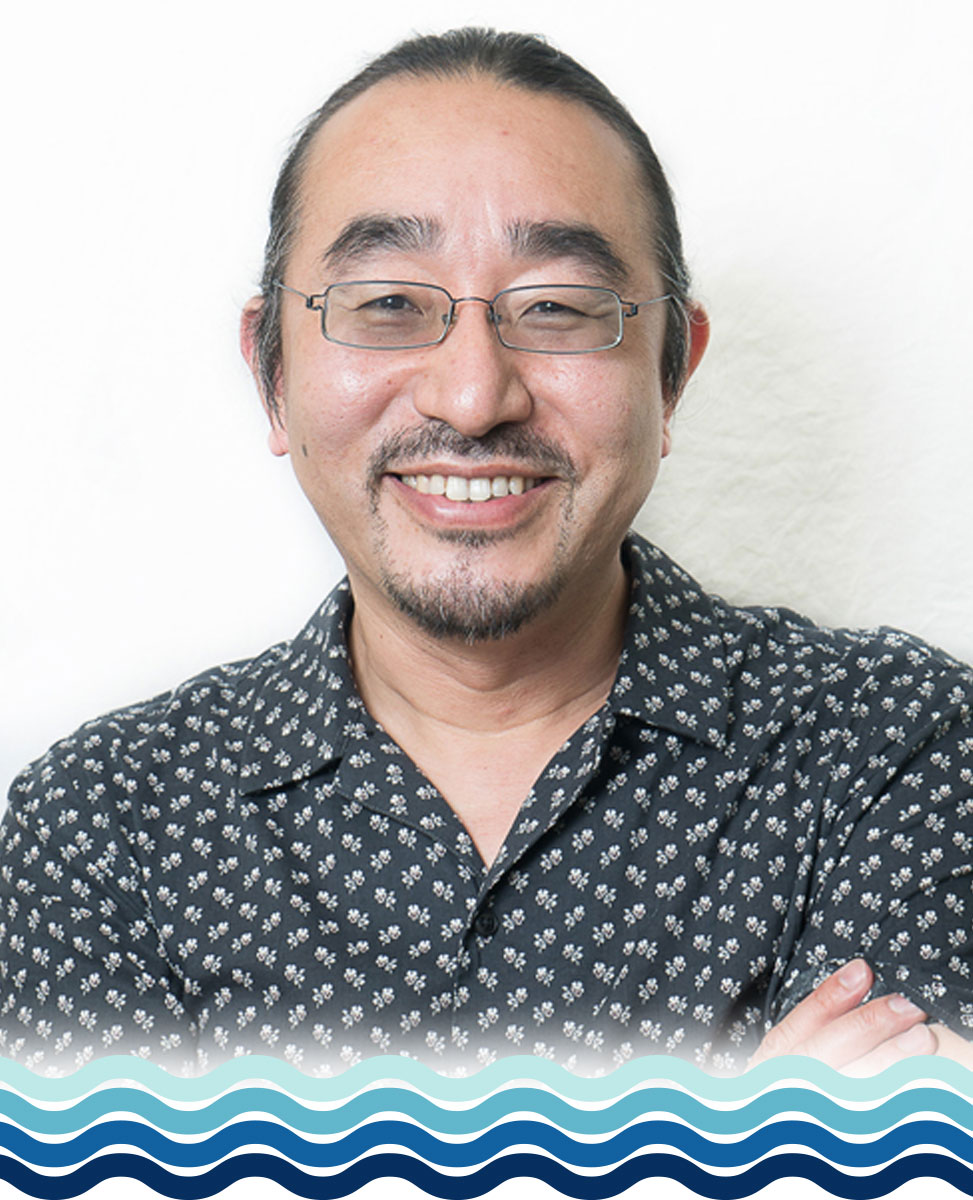Hiroaki Suga
Professor
University of Tokyo
Talk Information
New Fronteirs in Peptide Science
19 June 2025, 04:00 - 04:25, in the Pacific Jewel Ballroom
L69 – De Novo Discovery of Pseudo-Natural Products

Professor Hiroaki Suga serves as a Professor in the Department of Chemistry at the Graduate School of Science, University of Tokyo. He is renowned for pioneering research in bioorganic chemistry, particularly in the development of RNA-based catalysts and the discovery of bioactive peptides. His innovative work has significantly advanced the fields of chemical biology and peptide therapeutics.
Academic Background
Dr. Suga earned his Bachelor and Master of Engineering degrees from Okayama University in 1986 and 1989, respectively. He completed his Ph.D. in Chemistry at the Massachusetts Institute of Technology in 1994 under the mentorship of Professor Satoru Masamune. Following his doctoral studies, he conducted postdoctoral research at Massachusetts General Hospital and Harvard Medical School in the laboratory of Professor Jack W. Szostak. Dr. Suga began his independent academic career at the University at Buffalo, State University of New York, before joining the University of Tokyo in 2003. Since 2010, he has held a full professorship in the Department of Chemistry at the University of Tokyo.
Research Focus
Professor Suga's research centers on the interface of chemistry and biology, with a focus on RNA, translation, and peptides. He developed the flexizyme system, an artificial ribozyme that facilitates the incorporation of non-standard amino acids into peptides, thereby expanding the chemical diversity of ribosomally synthesized peptides. This technology underpins the Random non-standard Peptides Integrated Discovery, RaPID, system, which enables the rapid discovery of macrocyclic peptides with potential therapeutic applications.
Notable Contributions
Dr. Suga has made significant contributions to the field of chemical biology through his development of the flexizyme and RaPID systems. These innovations have opened new avenues for the discovery of bioactive peptides and have been instrumental in the development of peptide-based therapeutics. In recognition of his groundbreaking work, he was awarded the 2023 Wolf Prize in Chemistry, sharing the honor with Professors Chuan He and Jeffery W. Kelly for their collective advancements in understanding RNA and protein functions and dysfunctions.
Professional Engagements
Beyond his academic research, Professor Suga is actively involved in the scientific community. He serves as the President of the Chemical Society of Japan and holds editorial positions, including Chair of the Editorial Board at RSC Chemical Biology and Associate Editor at Angewandte Chemie. Additionally, he is the founder of PeptiDream Inc., a biopharmaceutical company specializing in the discovery and development of non-standard peptide therapeutics. His leadership in both academia and industry exemplifies his commitment to translating scientific discoveries into practical applications.
Through his innovative research and dedication to advancing chemical biology, Professor Hiroaki Suga continues to make significant contributions to science and medicine.
De Novo Discovery of Pseudo-Natural Products
Department of Chemistry, Graduate School of Science, The University of Tokyo, Tokyo 1130033, Japan
Macrocyclic peptides possess a number of pharmacological characteristics distinct from other well-established therapeutic molecular classes, resulting in a versatile drug modality with a unique profile of advantages. Pseudo-natural macrocyclic peptides are accessible by not only chemical synthesis but also ribosomal synthesis. Particularly, recent inventions of the genetic code reprogramming integrated with an in vitro display format, referred to as RaPID, Random non-standard Peptides Integrated Discovery system, have enabled us to screen mass libraries over trillion members.
We have recently developed a method of in vitro synthesis of lactazole A, one of thiopeptides, using the FIT, flexible in-vitro translation, system integrated with six Laz enzymes, and demonstrated one-pot synthesis of its analogs. This has led to construct a mass library, ~1012, of pseudo-natural lactazoles under reprogrammed genetic code, which was used for mRNA display to select bioactive species against proteins of interest. This lecture discusses the development of the technology and therapeutic potentials of pseudo-natural products.
Representarive References
"De Novo Discovery of Thiopeptide Pseudo-natural Products Acting as Potent and Selective TNIK Kinase Inhibitors."
A.A. Vinogradov; Y. Zhang; K. Hamada; J.S. Chang; C. Okada; H. Nishimura; N. Terasaka; Y. Goto; K. Ogata; T. Sengoku; H. Onaka; H. Suga*
J Am Chem Soc, 144, 20332–20341 (2022)
"Solid-Phase-Based Synthesis of Lactazole-Like Thiopeptides."
Y. Zhang; A.A. Vinogradov; J.S. Chang; Y. Goto; H. Suga*
Org Lett, 24, 7894–7899 (2022)
"Accurate Models of Substrate Preferences of Post-Translational Modification Enzymes from a Combination of mRNA Display and Deep Learning."
A.A. Vinogradov; J.S. Chang; H. Onaka; Y. Goto; H. Suga*
ACS Cent Sci, 8, 814–824 (2022)
"Accurate Broadcasting of Substrate Fitness for Lactazole Biosynthetic Pathway from Reactivity-Profiling mRNA Display."
A.A. Vinogradov; E. Nagai; J.S. Chang; K. Narumi; H. Onaka; Y. Goto; H. Suga*
J Am Chem Soc, 117 (43), 26728–26738 (2020)
"Promiscuous enzymes cooperate at the substrate level en route to lactazole A"
A.A. Vinogradov; M. Shimomura; N. Kano; Y. Goto; H. Onaka; H. Suga*
J Am Chem Soc, 142, 13886–13897 (2020)

